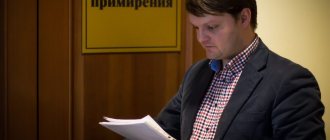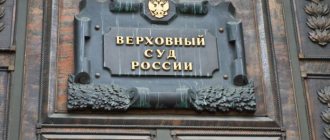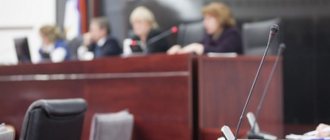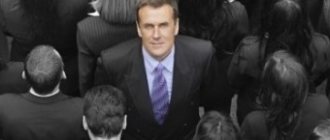Debate between the parties in criminal proceedings allows the judge to form an internal conviction and defend the participants’ own interests.
Along the way, it is possible to illuminate the framework of the process from different sides, ensuring objectivity and comprehensiveness of the approach, which is the basis for making a fair decision. Multi-channel free hotline Legal advice on criminal law. Every day from 9.00 to 21.00
Moscow and region: +7 (495) 662-44-36
St. Petersburg: +7 (812) 449-43-40
Statements by the parties
What is a pleading between the parties in a criminal trial? Article 292 of the Criminal Code regulates the composition and procedure for conducting debates.
- prosecutor;
- lawyer
Expressing their position is a mandatory step and cannot be excluded from the trial.
When the prosecutor refuses to argue, this is perceived as a refusal of the stated charges. Such a position of the state prosecutor must be justified in a prepared statement in accordance with Part 7 of Art. 246 Code of Criminal Procedure. Failure to speak out on the part of the defense attorney is seen as a refusal to defend his client. Such behavior is prohibited by part 7 of article 49 of the Code of Criminal Procedure. The accused can speak out even if a free lawyer is not available.
You can speak out and express your own position relying on the evidence presented during the proceedings. Documents that were not previously included in the document flow and are not relevant to the case are not taken into account by the judge.
The debate between the parties to the Code of Criminal Procedure is limited by time. When discussing circumstances not related to the case, the presiding judge has the right to stop the narration. The sequence in which all participants speak is determined by the court; this is indicated in Part 3 of Article 292 of the Code of Criminal Procedure. The prosecutor is the first to express his position, the last in this chain to express his opinion is the lawyer of the accused or himself.
In the CPC debate, each party to the process has the opportunity to make a remark, that is, a remark regarding the position expressed by the other parties to the case. Nobody obliges you to do this, and the law states the right to refuse to make your last speech.
Even the court is prohibited from limiting the last word, and during its utterance the defendant is prohibited from asking questions. If new circumstances or evidence in the last speech are revealed, the investigation is resumed.
The court then heads to the conference room to make a final decision on the case. An appeal against a decision occurs after the verdict has been announced.
From Plevako to Reznik: famous speeches of lawyers in court
Speech by Fyodor Plevako on the Lukashevich case
The speeches of the legendary lawyer Fyodor Plevako, who practiced in the 19th century, are considered a model of judicial eloquence and oratory. Often his judicial monologues are short and casual, as if they had not been carefully prepared in advance. The famous lawyer Anatoly Koni said that Plevako is “a man whose oratory turned into inspiration.” Plevako was guided not only by logic, but also paid attention to psychological factors. He evoked a feeling of sympathy for the defendants and thus sought leniency towards them.
- 10 best forensic monologues in cinema history: part one
August 31, 9:29 - 10 best judicial monologues in the history of cinema: part two
September 7, 10:26
Many of Plevako’s court appearances were included in collections and published. Including the speech on the Lukashevich case. On October 25, 1878, on his father’s estate, Nikolai Lukashevich shot his stepmother Fanny Lukashevich. He was accused of premeditated murder, and his defense lawyer (Fedor Plevako) insisted on reclassifying the murder as committed in a fit of insanity. The fact is that after the appearance of the stepmother, relations in the family went wrong, and constant scandals occurred. Plevako began his speech by saying that intentional murder is the most terrible evil.
But there are other types of murder. For example, passionate (in a fit of rage) or when the criminal did not have a goal to kill. As the lawyer noted, the legislator had to admit that murders are committed in a state “when there is no place for human judgment, when there is no basis for the accusation.” Plevako reasoned that a person’s powers are not limitless and sometimes he is not able to cope with the difficulties that arise in his life. And only after that he moved on to the personality of Lukashevich. Starting from childhood, he talked about the difficulties he had to endure. About the fact that he was deprived of parental affection, studied far from his home, found himself in a war, and when he returned, he met his stepmother instead of his mother. She transferred all the discord in her relationship with Lukashevich’s father to her stepson, and was indignant that he was “able to work, lives in their house, eats their bread.” And the defendant’s father, in conversations with his son, did not portray his new wife in the best light. And he even suspected her of having an affair with her second son, the brother of the accused.
Fragment of Plevako’s speech:
“Fanny Vladimirovna, who somehow especially knew how to arouse the hatred of the people around her, did not think at all about reconciliation with her stepson. On the contrary, she systematically, artificially tried to worry him and for this she came up with a new method - a lawsuit. She declares to the magistrate that her stepson insulted her, citing a lot of witnesses.”
On top of all this is the news of his brother’s death. Not only relatives, but also people who knew the family were sure that Fanny Lukashevich was to blame for his death. For the defendant, according to Plevako, there was one consolation - this was his father’s estate, from where his stepmother moved out. At the same time, she told her husband to pay her a certain amount for maintenance. The lawyer explained that on the fateful day the stepmother decided to return to the estate, precisely when “the indignation in the house reached its most extreme limits.”
As a result, Lukashevich was found guilty of murder committed in a fit of insanity. The jury returned a not guilty verdict.
Speech by Pyotr Alexandrov on the Zasulich case
Revolutionary and socialist Vera Zasulich was accused of attempted murder of the St. Petersburg mayor, General Trepov. On January 24, 1878, she came to Trepov for a personal reception under the guise of the applicant and shot him with a pistol. The crime was classified as premeditated, with premeditated intent. According to Zasulich, she was outraged by the lawless actions of General Trepov, who ordered the flogging of political defendant Alexei Bogolyubov, who was being held in a pre-trial detention center. The case was considered by the St. Petersburg District Court with the participation of jurors on March 31, 1878. Zasulich's defender was lawyer Petr Alexandrov. Alexandrov told his colleagues: “Give me the defense of Vera Zasulich, I will do everything possible and impossible to justify her, I am almost sure of success.”
“Give me the defense of Vera Zasulich, I will do everything possible and impossible to justify her, I am almost sure of success.”
In his court speech, the lawyer made a connection between the flogging of Bogolyubov on July 13 and the shooting of Trepov on January 24. He explained that the defendant did not have any personal motive; she was not familiar with the mayor before the assassination attempt. And she did not immediately intend to commit this crime. The lawyer spoke about the life and fate of Zasulich. At the age of 17, she met student Sergei Nechaev (as it turned out, a state criminal). At his request, Zasulich handed over letters several times, knowing nothing about their contents, and then was charged with a state crime and spent 2 years in prison.
Zasulich found out what happened to Bogolyubov. She was waiting for justice, that someone would stand up for the helpless convict. She was also worried about another question: who would stand up for the fate of other unfortunates?
Fragment of Alexandrov’s speech:
“Zasulich created and secured in her soul forever one sympathy - selfless love for anyone who, like her, is forced to drag out the unhappy life of a suspect in a political crime. “When I commit a crime,” thought Zasulich, “then the silenced question of Bogolyubov’s punishment will arise. My crime will cause a public trial.”
For the first time, a woman appears here for whom there were no personal interests or personal revenge in the crime - a woman who, with her crime, connected the struggle for an idea in the name of someone who was only her brother in the misfortune of her entire life... She can leave here convicted , but she will not come out disgraced, and we can only wish that the reasons that produce such crimes will not be repeated,” said Alexandrov.
Zasulich refused the last word. The debate was declared over. She faced prison for the crime, but the jury ultimately found her not guilty.
As soon as the verdict was announced, pandemonium began in the hall. Everyone applauded and shouted: “Bravo!” And Alexandrov’s speech was later published in many Russian newspapers and translated into foreign languages.
Speech by Sergei Andreevsky on the Bogachev case
On April 10, 1892, in the courtyard of house No. 8 on Vladimirskaya Street in St. Petersburg, student A. Bogachev stabbed his wife five times. The wounds turned out to be minor, the attacker was detained at the crime scene. Bogachev pleaded guilty to attempted murder of his wife, but then changed his mind: he said that he injured his wife in a state of passion and excessive irritability. The lawyer who defended Bogachev, Sergei Andreevsky, asked for leniency for his client and assured that he had no intent to commit a crime.
In his speeches, Andreevsky always put in the foreground the personality of the defendant, his life and the conditions in which he committed the crime. Andreevsky believed that criminal lawyers should learn to reveal the human soul, as they do in fiction. By the way, before becoming a lawyer, Andreevsky worked as a prosecutor and was even offered to speak in the Zasulich case with the prosecution, because he had established himself as a first-class judicial speaker. But Andreevsky refused.
Bad advice: top mistakes lawyers make in courts
In his speech in Bogachev’s case, the lawyer spoke about the difficult fate of his client. He lost his parents as a child and lived poorly all his life. By the age of 20, he managed to get a job as a secretary at the newspaper “Novoye Vremya” and receive a stable and good income. He decided to marry for love, the lawyer assured. But, according to Andreevsky, the bride had other views. Louise Gleb-Koshanskaya did not like Bogachev. She was noticed in connection with someone else and she needed marriage in order to be considered a decent woman in society. Another reason is the spouse’s money and connections. Bogachev’s chosen one, with the help of her husband, wanted to achieve her dream of becoming an actress. Problems in their family began immediately after the wedding: first, the mother-in-law and another daughter moved in with the newlyweds, then the wife secretly entered drama school and began endlessly spending her husband’s money. All scandals ended with the lover Bogachev giving in. He even had to quarrel with the editor because of a critical review that Novoye Vremya published about his wife. And then, having become pregnant, the wife tried to get rid of the child. As a result, Bogachev lost his job, got into debt, and his wife, mother and sister moved out of the apartment, which he could no longer pay for. The lawyer assured that having survived this, his client could no longer respond to his wife with “eternal courtesy and angelic kindness.”
Fragment of Andreevsky's speech:
“Having examined this case, we can believe the defendant that he acted in a state of instant blackout, that he did not say the terrible words - “we must kill her” ... It was some kind of senseless bloody brawl after long feats of amazing patience, generosity and slavery , is one of those meaningless scenes that are possible only after tense family disagreements, supported by an experienced schemer.
Andreevsky managed to obtain leniency for the principal and prove that the crime was not intentional; Bogachev was found guilty of attempted murder of his wife in temper and irritation and was sentenced to exile in the Tomsk province.
Andreevsky has other famous judicial monologues. Stenographers came to almost all of his affairs in order to later publish his speeches in newspapers. In 1891, Andreevsky published a collection of his court speeches, and after that young lawyers began to quote parts of his monologues in their meetings.
Speech by Vladimir Spasovich on the Cronenberg case
Banker and nobleman Stanislav Kronenberg was accused of subjecting his seven-year-old daughter Maria to torture. In July 1875, the father caught the girl stealing prunes and severely punished her - he flogged her with rods for 15 minutes at full force. The girl's screams attracted the attention of the janitor and the former maid, who contacted the police. In the “History of the Russian Bar,” this case is called extremely important, including because different approaches to family pedagogy collided. Conservatives were afraid that after the trial the state would begin to interfere in family affairs, liberals hoped that the case would somehow help correct the cruelty of some parents. Mikhail Saltykov-Shchedrin dedicated the article “The Cut Off” to the Cronenberg trial. He also described what was happening at the meeting and the words of the defense lawyer.
After talking about the life and family relationships of the defendant, lawyer Vladimir Spasovich moved on to the main question: do parents have the right to punish their children? He said that from the entire investigation it was clear that his father punished him with rods only once. And the doctors who spoke at the trial said that “the injuries did not have a particular impact on the child’s health.” Therefore, the defense lawyer suggested to the jurors that parents can punish their children in ways that do not harm their health. That his principal had the right to educate and punish his daughter if he was dissatisfied with her behavior.
Fragment of Spasovich’s speech:
“They say: “For what? Is it possible to punish so strictly for a few pieces of prunes and sugar? “I believe that from prunes to sugar, from sugar to money, from money to bank notes, the path is straight, the open road.”
As a result, the jury acquitted Cronenberg. The public widely discussed this decision. There were disputes about the legality of the acquittal of the father who beat his daughter, and about the institution of the legal profession, which defended the culprit.
For Spasovich it was an assignment, after which he received a lot of criticism. It is possible that he could somehow refuse it, but he did not. Saltykov-Shchedrin was very dissatisfied with the lawyer: “The most natural thing would be to turn to Mr. Spasovich with a question: if you do not approve of either slaps or rods, then why get involved in such a case, which consists entirely of slaps and rods?” Fyodor Dostoevsky approved of Cronenberg’s acquittal, because it helped save the family, but he condemned Spasovich for crossing out the feeling of compassion for the child with his statements: “A girl, a child; she was tortured, tortured, and the judges want to defend her - and what a holy cause it seems!”
Speech by Mikhail Barshchevsky in the Constitutional Court
In October 2019, the Constitutional Court considered the complaints of three Muscovite women who suffered from repression. For many years, women could not receive compensation guaranteed by law - free apartments to replace those that were taken away from them. The most emotional and vivid were, of course, the speeches of the applicants. But the monologue of the representative of the Russian Government in the Constitutional Court, Mikhail Barshchevsky, also deserves attention. He took the floor after a representative of the Moscow government, who expressed the opinion that placing “children of the Gulag” in the general queue is a fair decision. Barshchevsky began his speech with an apology addressed to the applicants, “on behalf of some, at least Muscovites, for what they heard.” Then he told the story of his family: his grandfather was shot, his grandmother miraculously survived but was deported, and his father managed to return to Moscow only in the mid-1950s.
Fragment of Barshchevsky's speech:
“The government, the state power, has ruined lives. And today someone is finding legal hooks to say: “We are not responsible for anything, we have nothing to do with it.” You and I - you, my colleagues, and I - we are the current government. And if we are not responsible for the actions of the previous government, then think about what will happen to our descendants.”
As a result, the Constitutional Court obliged legislators to provide victims of repression with the right to housing. He recognized as contrary to the Constitution the provisions of regional laws and the Moscow law, which do not recognize the right of children of repressed people to improve their living conditions.
Speech by Henry Reznik on the Lebedev case
One of the most significant court speeches in modern times was delivered by lawyer Henry Reznik in defense of his colleague Alexander Lebedev. In mid-December 2022, Lebedev was accused of presenting to the court as evidence a deliberately forged certificate (it confirmed that his client did not violate the conditions of house arrest). The investigation cited the testimony of the pediatrician who issued this certificate. According to her, Lebedev’s trustee asked to issue the document “retroactively.” The investigation decided that the lawyer should have known about this, which means he presented the court with a deliberately forged document.
Eight bad tips: what a lawyer should not say during negotiations
Lebedev did not admit his guilt. He stated that he was confident of the paper's authenticity. A criminal case was first opened against the lawyer under Part 3 of Art. 303 of the Criminal Code - falsification of evidence in a criminal case of a serious crime, and then reclassified as interference in the activities of the court (Article 294). The case could have been dismissed due to the expiration of the statute of limitations. The prosecution asked to fine him 200,000 rubles. and exempt from criminal liability due to the expiration of the statute of limitations.
But Lebedev petitioned for the case to continue to be heard. His defense insisted on a full acquittal. In court, Reznik stated that lawyering is based on trust - when receiving documents from a client, the lawyer considers them authentic and does not check their authenticity. Reznik added that the defense attorney should not turn into a judge for his client and doubt the evidence presented by the client. Therefore, the representative has no choice but to ask for the document that the applicant is asking to be included in the process.
About 40 lawyers and attorneys came to support Lebedev, because the professional community considers this case “an attack on the nature of the profession.” If Lebedev is found guilty, then any action by the lawyers during the trial could be interpreted as “obstruction of justice,” Reznik warned.
Fragment of Reznik’s speech:
“The Federal Chamber of Lawyers perceives this untenable criminal prosecution as an attack by the enemies of the legal profession on its basic foundations. I am convinced that this attack on our legal institution will fizzle out. But I would like to stop it here, in the first instance of the district court, which is closest to protecting the rights and freedoms of ordinary citizens - our clients. Lawyer Lebedev, who honestly and conscientiously performed his professional duty, is subject to acquittal. Such odious cases should not appear on the judges’ tables.”
As a result, in 2022, the Tverskoy District Court acquitted lawyer Lebedev. The lawyer himself said that the court did not see obstruction of justice in his actions. The court did not take into account the fact that a false certificate was included in the case, because this document was presented by the trustee.
Materials used to create the collection:
AND I. Kozachenko. Truth and law. Court speeches by famous Russian and foreign lawyers. Book 2.
F.N. Gobber. Selected Speeches.
IN AND. Smolyarchuk. The trial of Vera Zasulich.
EAT. Vorozheikin. Judicial speeches of famous Russian lawyers.
I.V. Gessen. History of the Russian Bar.
- Anastasia Sinchenkova
Prosecutor in a criminal trial
Everything that the prosecutor did during the investigation, the evidence collected, the approved position, is summed up in a monologue in court. The blocks and the sequence of their presentation in the constructed monologue may differ depending on the circumstances in the case.
- Reveal the violation of the law and the illegal act committed by the accused.
- Provide evidence to prove guilt.
- Mark evidence that is not confirmed, on the basis of which it should be rejected by the court.
Well-chosen arguments help the prosecutor convince the court of the correctness of his position. The punishment is announced and the personality of the accused is assessed. Based on Articles 39 and 37 of the Code of Criminal Procedure, the severity of the crime, its type and nature are described. For example, they were accused of theft, or perhaps they proved participation in fraud.
The prosecutor must justify the classification of the illegal act.
The actions of the defendant must constitute a crime and be charged under a specific article of the Criminal Code.
It is important to know the content and follow the order of the parties' debates, in accordance with which the parties' debates take place. The prosecutor should not indicate exact terms for individual penalties. In legal proceedings, this is the prerogative of the court. If there is damage, the prosecutor can put forward his thoughts on how it should be compensated to the injured party.
Stages of consideration of a criminal case
The stages of the trial are strictly regulated by the Code of Criminal Procedure. The court has the right to deviate from observing the sequence of these stages, but each of the stages must be completed, even formally.
So, for example, at the beginning of each court hearing, the court determines whether the participants in the process have petitions. In most cases this is a formality, but it must be respected.
The omission (absence of information in the protocol of the court hearing) of at least one of the stages is grounds for canceling the sentence.
How to behave during court hearings?
The Code of Criminal Procedure of the Russian Federation defines the requirements for holding debates between the parties. Participants in the process are required to speak on the merits of the case and not interrupt each other. The law prohibits asking questions of other speakers. Only the court has this right. However, it is possible to respond to the opposing party’s speech after it has ended.
The key component of the debate is the guilt of the defendant and his punishment. Since the goals of the speakers are different, they strive to present this topic from their own positions. In this case, participants in the debate are required to rely on the evidence base in the case.
Speech by the defendant
The peculiarity of the defendant’s speech is that after the debate he will have the right to the last word. These two speeches are not much different in content, so defendants often refuse the last word.
The main thing that the defendant must note is:
- does he admit his guilt;
- whether he regrets what he did and whether he compensated the victim for the damage;
- whether he has grounds to ask for a reduced sentence.
To summarize, this debater must ask the court to acquit him or reduce his punishment.
Debate
In accordance with Art. 292 of the Code of Criminal Procedure of the Russian Federation, the prosecution and defense must participate in the debate. If the defendant refuses a defense lawyer at the trial, he speaks independently in the debate, while retaining the right to the last word.
If desired, the victim, his lawyer or representative may participate in the debate.
Also, the defendant, civil plaintiff or defendant may participate in the debate, provided that they file a corresponding petition.
Regardless of how many people will participate in the debate, the prosecutor will be the first to speak, and the last will be the defendant’s defense attorney (or the defendant himself in the absence of a defense attorney).
How should the defendant structure his speech?
Almost all of their clients ask lawyers about what to say in the last word. The purpose of the speech is to accurately and structuredly present all the evidence of one’s innocence or to emphasize the fact of repentance and other advantages of the defendant that may influence the court’s decision.
To do this, it is important to get the help of an experienced, qualified lawyer. Based on the experience of defendants giving their last word, the content of their speech should include information about:
- Family status, due to which, when a real term of imprisonment is assigned, the defendant may have financial problems that will affect the well-being of his family. In this regard, an important aspect is the presence of minor dependents.
- Achievements in work and other areas of activity. They must be confirmed by certificates, diplomas and other documents.
- No previous convictions.
- If you admit guilt and repentance, you need to report this and apologize to the victim again.
- If the defendant does not admit guilt, then he must reasonably explain why and give reasons for his own innocence.
- If there are new circumstances that may affect the court's decision, they must also be reported.
- Explain your own attitude towards the trial and behavior during meetings.
Despite the prevailing opinion that the last word is an empty formality, if it is correctly composed, it can significantly affect the outcome of the case. It is especially important not to waive the right to have the final say in jury trials. It is the defendant's last speech that can sway them to his side.
Statement by the victim and private prosecutor
The judge is obliged to ask the victim about his desire to speak in the debate of the parties in the criminal case. In civil cases, the victim acts as an accuser and independently puts forward demands for recovery of damages from the defendant.
In the speech, the victim says:
- about the damage caused;
- its compensation to the defendant;
- necessary punishment for the culprit.
In criminal cases, the victim may agree with the prosecutor's demands, but may also ask the court to reduce the defendant's sentence.








